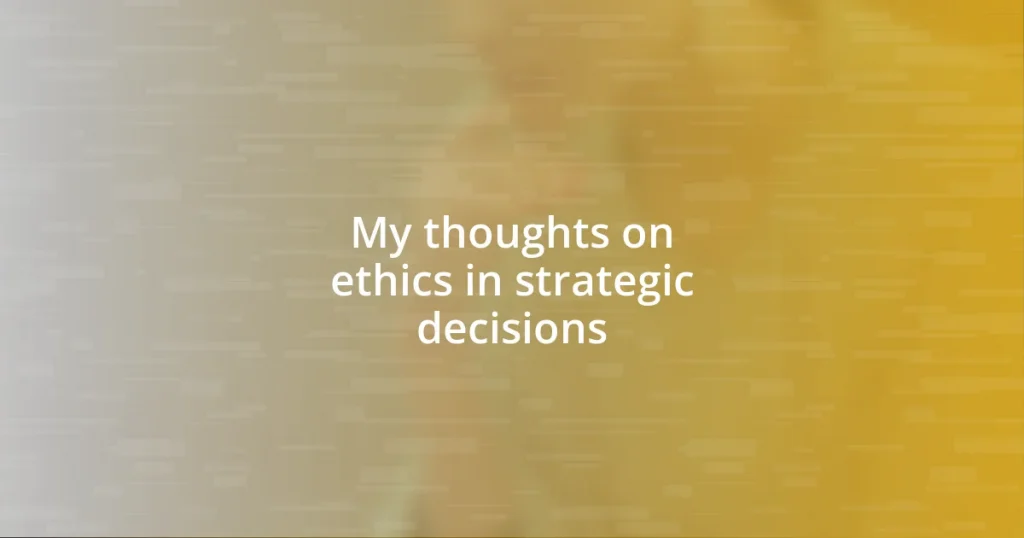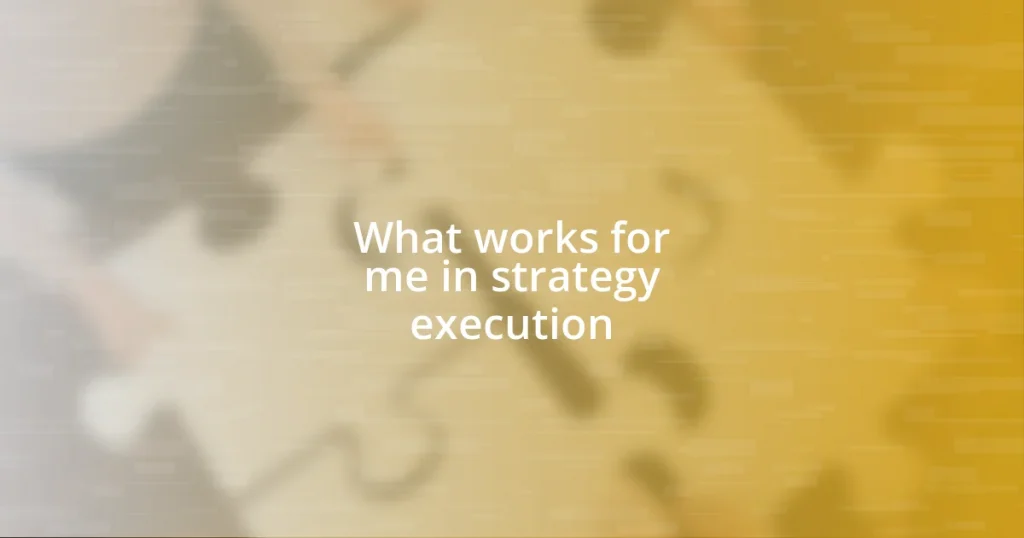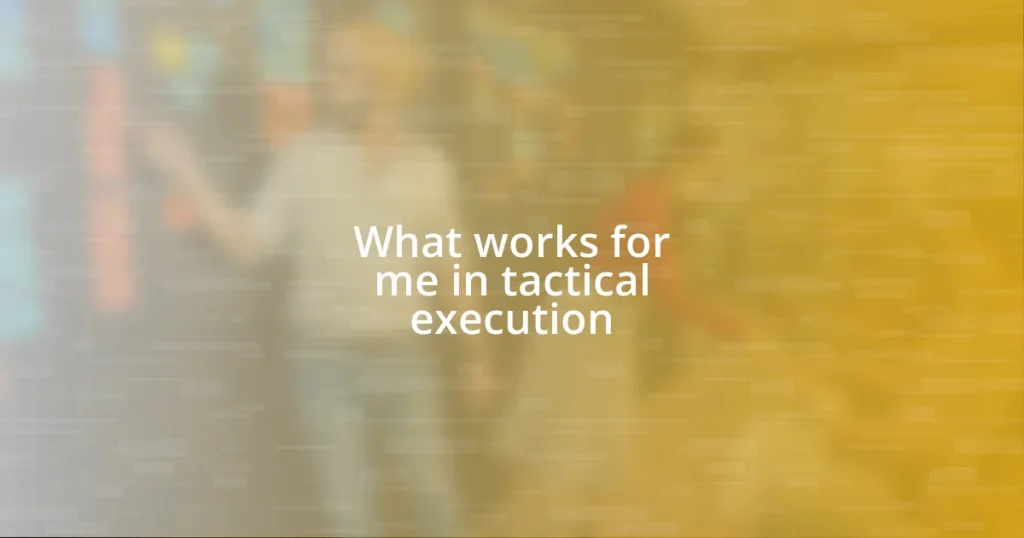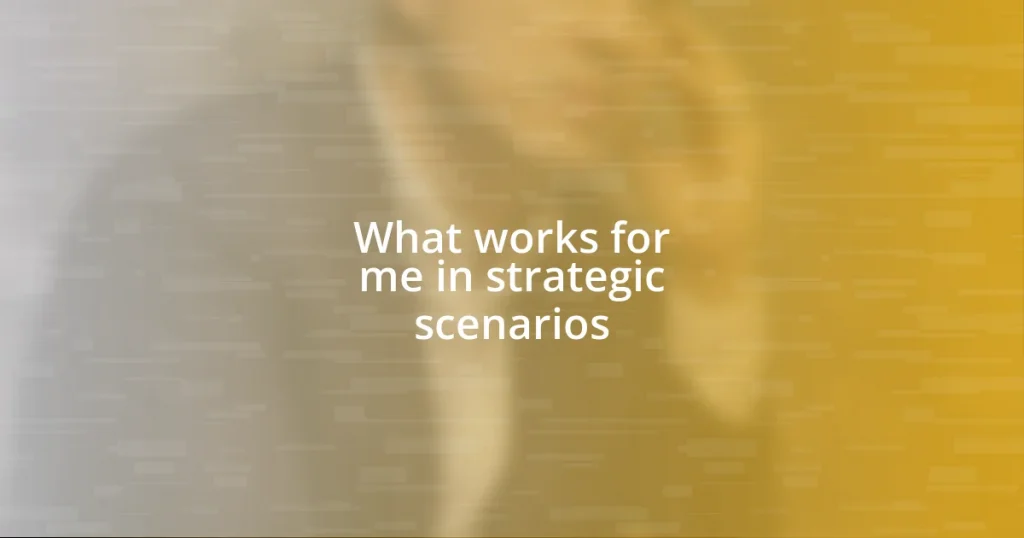Key takeaways:
- Understanding ethics in strategy emphasizes the influence of decisions on people and communities, aligning strategic goals with core values for sustainable growth.
- Ethical decision-making builds trust and credibility, enhances company reputation, and fosters employee morale, all of which are crucial for long-term success.
- Case studies illustrate the positive impact of ethical strategies, such as prioritizing user privacy and fair labor practices, demonstrating that ethical decisions can drive both community benefit and business success.
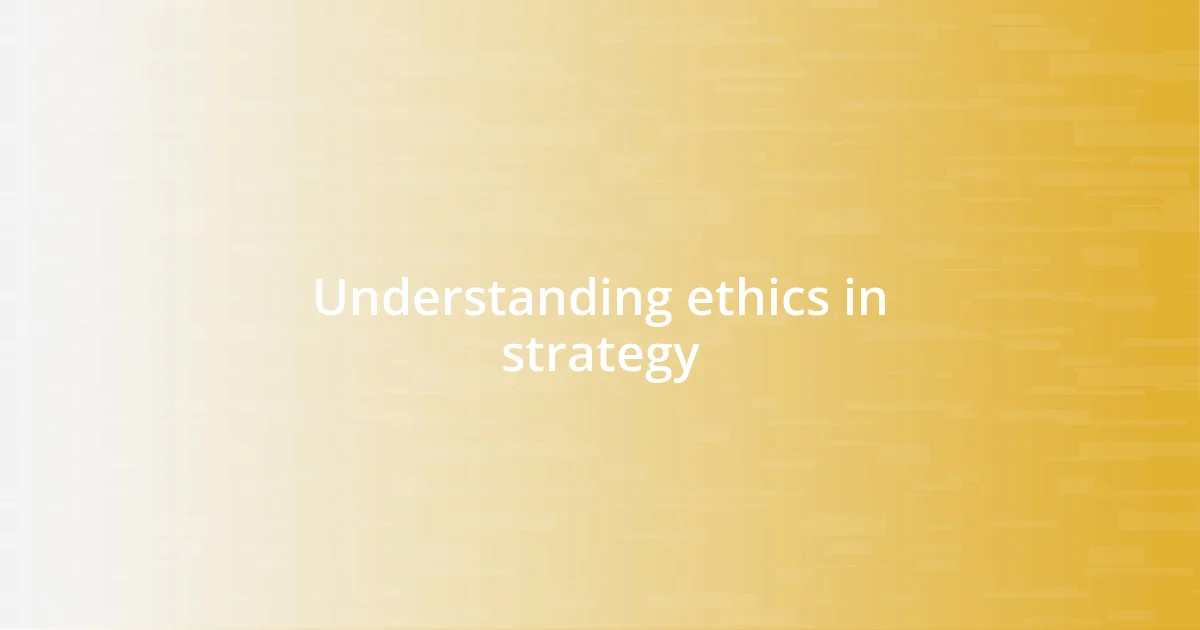
Understanding ethics in strategy
When I think about ethics in strategy, it often reminds me of a difficult decision I faced in my early career. I had to choose between pursuing a profitable project that came with potential ethical dilemmas or staying true to my values and risking my advancement. It was a classic crossroads, emphasizing that ethical considerations should always play a crucial role in strategic choices.
Ethics in strategy isn’t just about following rules; it’s about the impact of our decisions on people and communities. Have you ever wondered how certain business strategies can hurt employees or the environment? The weight of those choices can linger long after decisions are made, shaping not only the company’s reputation but also its long-term success.
Ultimately, understanding ethics in strategy means recognizing the interconnectedness of decisions. I remember a colleague who once emphasized that every strategy should reflect a company’s core values. It’s a reminder that aligning strategic goals with ethical standards isn’t merely a guideline; it’s a foundation for sustainable growth and trust in any organization.
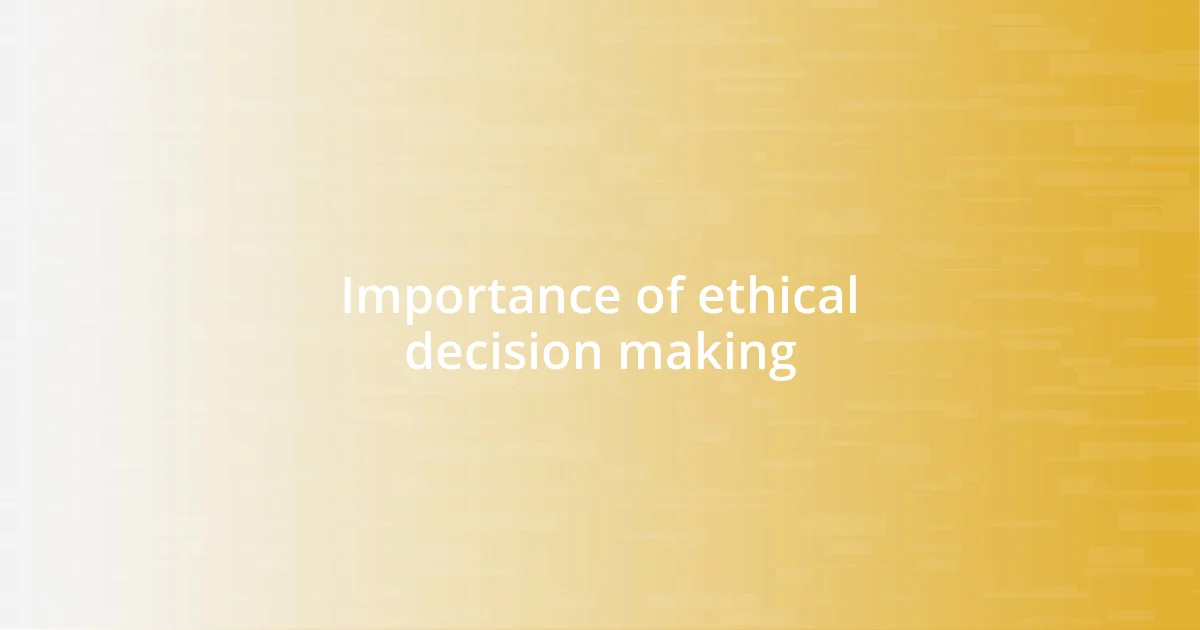
Importance of ethical decision making
Ethical decision-making is vital for building trust and credibility within an organization. I once worked with a leader who insisted on transparency in all dealings, even when it wasn’t the easiest path. That leader’s commitment to ethics not only fostered loyalty among employees but also attracted clients who appreciated our integrity. In today’s world, a company’s ethical stance can significantly influence its market position and customer relationships.
Here are some key reasons why ethical decision-making is crucial:
- Trust Building: When companies prioritize ethics, they cultivate deeper relationships with stakeholders, enhancing loyalty.
- Reputation Management: Ethical decisions protect a company’s reputation, as public perception can heavily sway customer choices.
- Sustainable Growth: I’ve seen businesses thrive that aligned their strategies with ethical practices. This approach ties economic success to societal good.
- Risk Mitigation: Ethical missteps can lead to legal troubles and financial losses, making responsible choices essential.
- Employee Morale: An ethical work environment boosts employee satisfaction and engagement, leading to better performance overall.
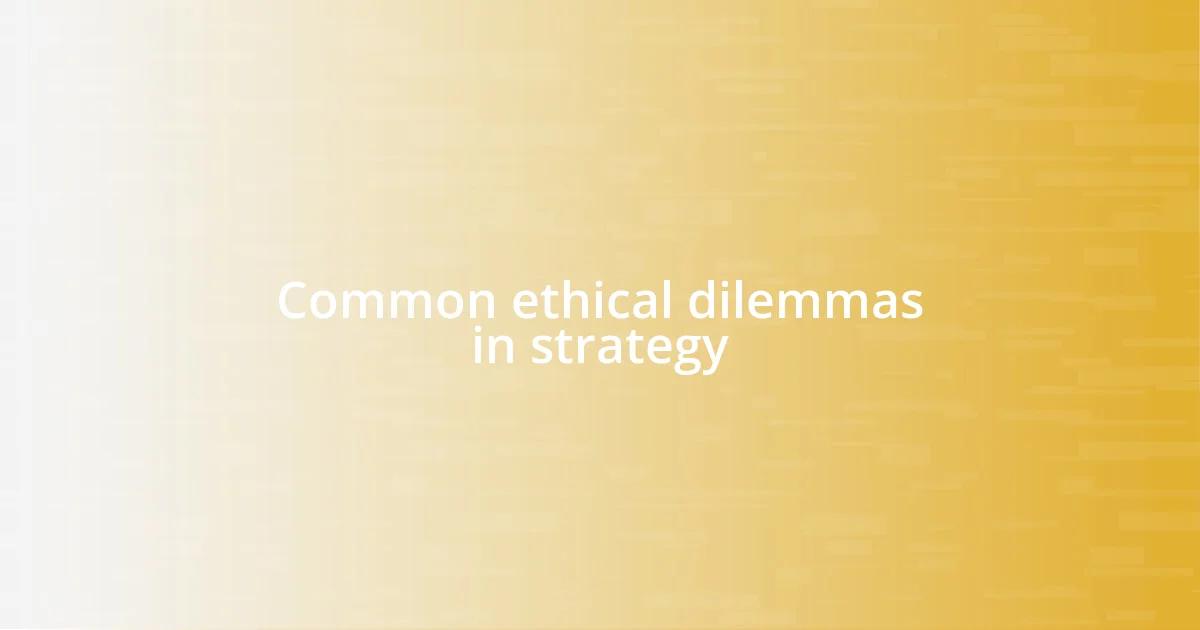
Common ethical dilemmas in strategy
Common ethical dilemmas often surface in strategic decision-making. For instance, I recall a situation in which my team had to decide between investing in a new technology that promised high returns but posed environmental risks. It was a tough call; on one hand, the potential for profit was tempting, but on the other, the ethical implications weighed heavily on my conscience. Ultimately, we chose to pursue a more sustainable option, prioritizing our responsibility towards the planet, and I felt a deep sense of pride in our decision.
Another frequent dilemma revolves around stakeholder interests conflicting with profit motives. In my experience, this often leads to intense debates within organizations. For example, I once saw a company grapple with a pricing strategy that would significantly increase profits but also alienate a large number of loyal customers. It made me realize how crucial it is to balance financial goals with the needs of stakeholders; maintaining that equilibrium can be key to long-term success.
One particular ethical issue that emerged during my consulting years involved employee treatment during restructuring. I witnessed firsthand how decisions aimed at improving profit margins led to significant job losses and strained relationships within teams. It’s these moments that serve as a reminder that ethical dilemmas aren’t just theoretical—they can have real, lasting impacts on people’s lives and the company culture itself.
| Ethical Dilemma | Description |
|---|---|
| Environmental Responsibility | Decisions that prioritize profit over environmental sustainability. |
| Stakeholder Interests | Balancing profit motives with the needs and expectations of stakeholders. |
| Employee Treatment | Making strategic changes that affect employee job security and morale. |
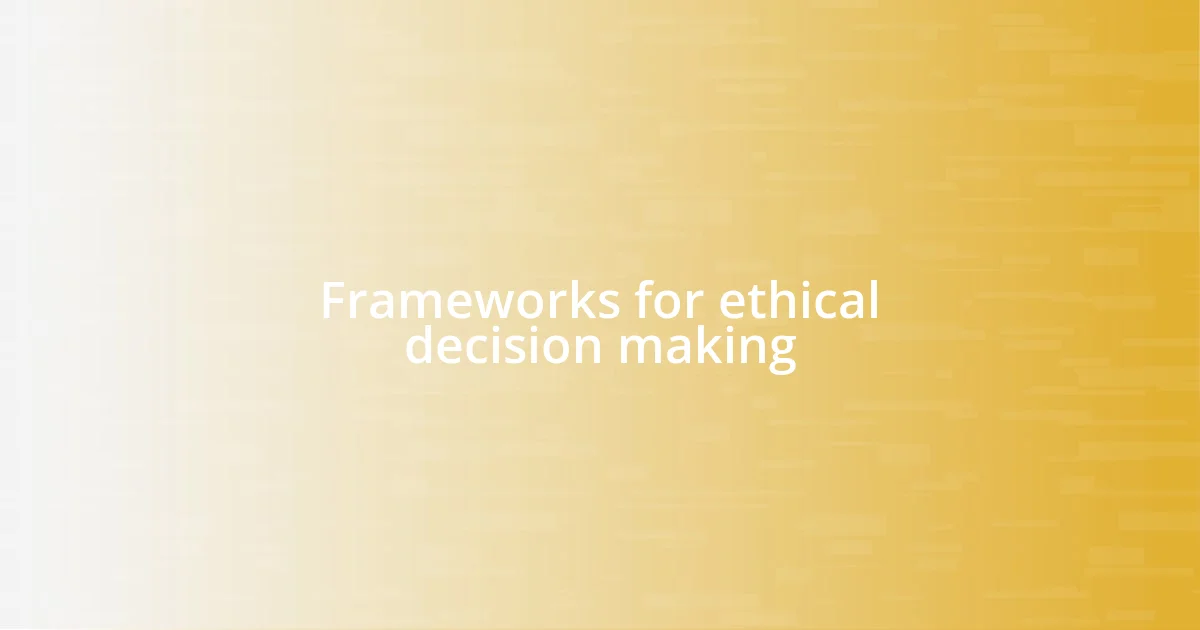
Frameworks for ethical decision making
When it comes to frameworks for ethical decision-making, one approach that stands out for me is the utilitarian framework. This focuses on the consequences of actions and aims for the greatest good for the greatest number. I remember a time when my team was tasked with reallocating resources for a project that would benefit many employees but potentially leave a few feeling undervalued. We weighed the positive impact on overall morale against the concerns of the few. In the end, choosing the path that benefitted the majority created a vibrant atmosphere, but it also made me ponder—were the needs of the minority adequately considered?
Another significant framework is the rights-based approach, which emphasizes respecting and protecting individual rights. I once faced a dilemma while advising a company on a new policy that required extensive data collection from employees. It raised questions about privacy and consent. The push for data seemed justified for enhancing productivity, yet I couldn’t shake the feeling that infringing on privacy felt fundamentally wrong. Engaging in open dialogues with employees about their rights not only elevated trust but helped shape a policy that balanced the company’s needs with the respect for individual autonomy.
Lastly, I find the justice approach particularly compelling. This framework focuses on fairness and equality. A vivid memory comes to mind when my previous organization had to navigate pay raises across departments. There were discrepancies that seemed unjust to some, creating discomfort among teams. This prompted heartfelt discussions around equitable treatment. As we tackled these issues, I realized that a transparent process can strengthen relationships and importantly, drive home the message that everyone deserves fair consideration, fostering a more inclusive corporate culture. How much more productive might organizations be if they embraced fairness as a core value?
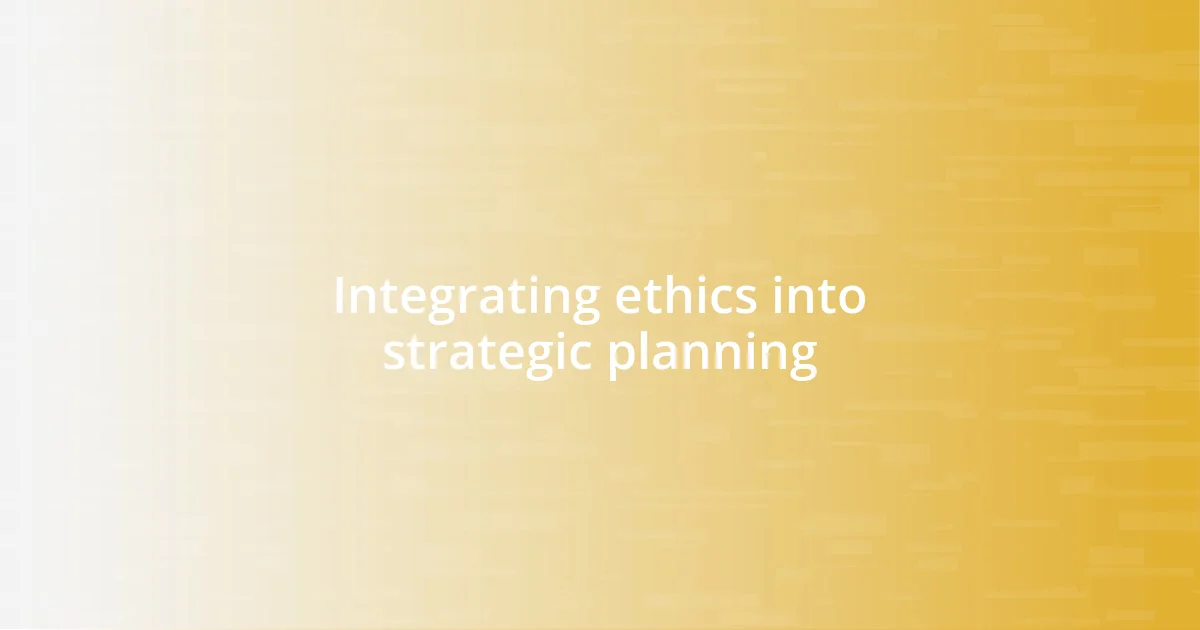
Integrating ethics into strategic planning
Integrating ethics into strategic planning requires a deliberate approach. Reflecting on my past experiences, I remember when my organization broadened its strategic goals to include ethical considerations directly. This shift wasn’t just about compliance; it made me feel genuinely invested in the company’s mission. Involving team members in discussions about our core values fostered a sense of ownership that motivated everyone to align their efforts with our ethical framework.
I have also witnessed the exhilarating yet daunting challenge of incorporating stakeholder feedback into strategic decisions. There was a time when our team organized a workshop to gather insights from customers about a new product launch. The feedback we received was eye-opening—it gave us a different perspective, showing how our decisions impacted them. I learned how crucial it is to listen actively; it’s a reminder that ethical considerations aren’t just abstract ideas; they are real, tangible aspects that shape our company’s reputation and relationships.
What I find particularly crucial is the need for continuous evaluation of ethical practices. During a major project execution, we implemented regular check-ins to assess how our strategies aligned with our ethical commitments. I can still remember the sense of relief when we recognized potential issues before they escalated. It reinforced my belief that ethics should be embedded in the fabric of strategic planning, not just an afterthought. Isn’t it empowering to know that our decisions today can create a more ethical future for everyone involved?
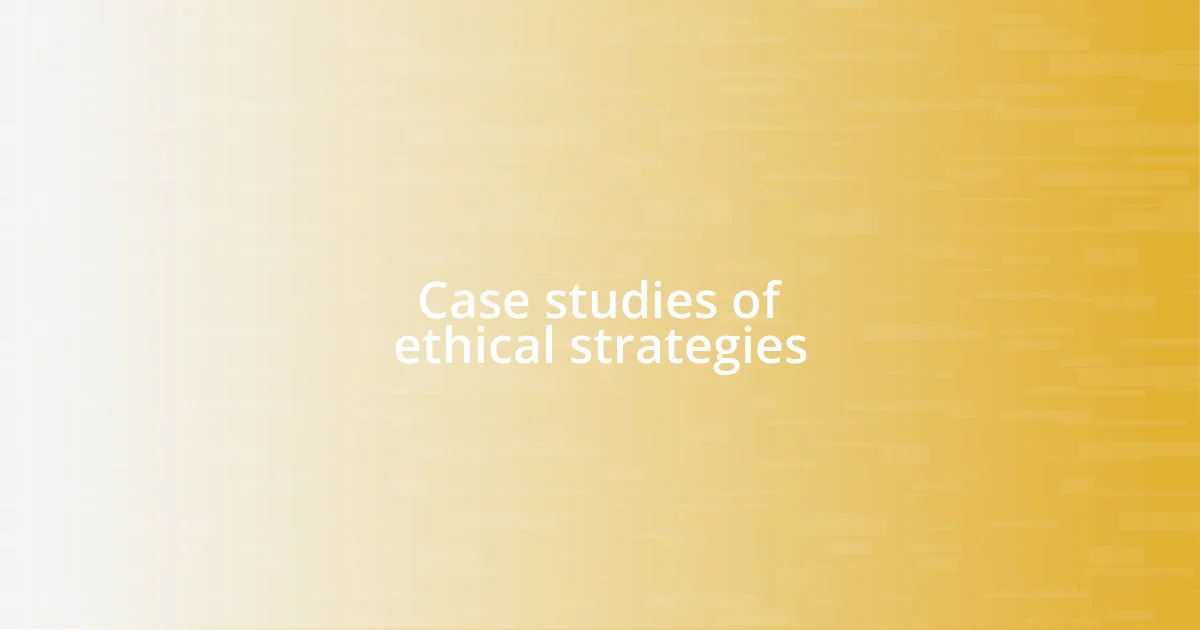
Case studies of ethical strategies
One intriguing case study of ethical strategies is when a well-known tech company decided to implement a strict privacy policy after facing backlash about data misuse. I remember being part of discussions that revolved around the balance between profitable innovations and respecting user privacy. This initiative made the company not just compliant but also fostered trust among its users, transforming a potential crisis into a significant opportunity for reputation enhancement. Could taking a stand on ethical grounds be the key to long-term success?
In another situation, a retail chain faced criticism over the labor practices within its supply chain. It initiated a comprehensive audit and made substantial changes to ensure fair wages and safe working conditions. From my perspective, the transparency that followed was refreshing; they openly shared their journey with consumers. This openness not only demonstrated accountability but also set a new standard in the industry. Imagine how empowered their employees felt when they saw that change truly happening!
I also recall a pharmaceutical company that took the ethical route in pricing its life-saving medication. Instead of pricing it for maximum profit, they engaged in partnerships to provide affordable options in low-income areas. Witnessing how the company prioritized people over profits struck a chord with me. It wasn’t just business; it was genuinely making a difference in lives. Have we fully grasped the impact our strategic decisions can have on communities?
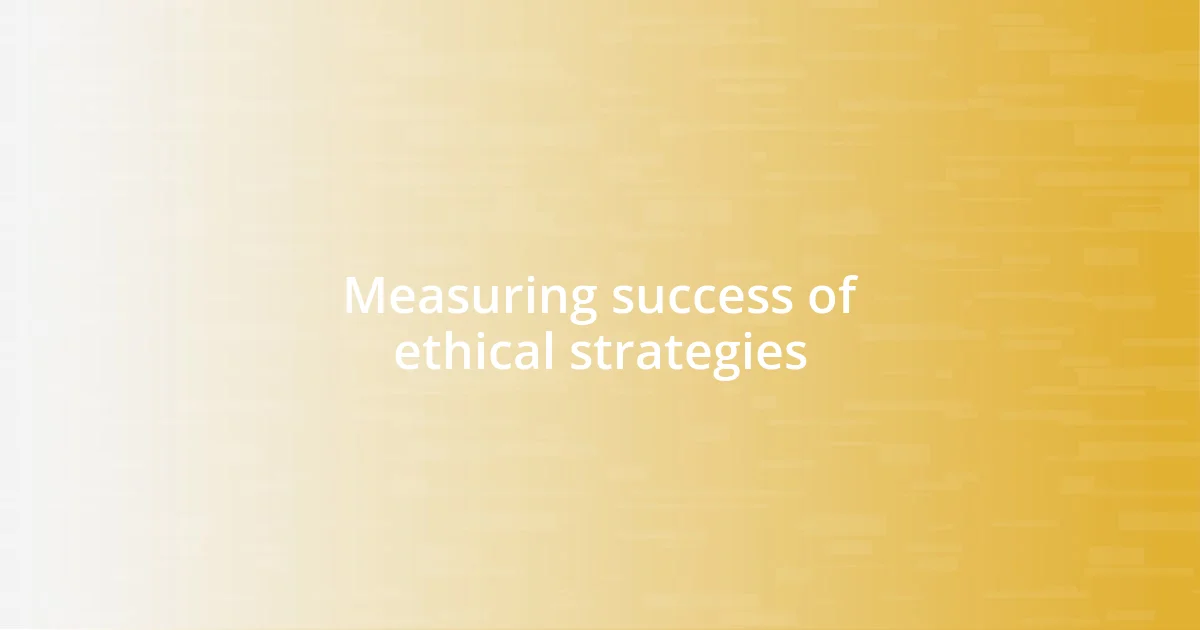
Measuring success of ethical strategies
Measuring the success of ethical strategies can be quite intricate, but I’ve found that tangible outcomes often tell the true story. For instance, after implementing an ethical sourcing policy, I noticed a remarkable increase in customer satisfaction and loyalty. Seeing those positive feedback emails roll in because our clients appreciated our commitment to sustainable practices felt incredibly rewarding. Has anyone ever told you how a simple choice can deeply influence people’s perception?
Another powerful indicator is employee engagement. When our organization embraced a more transparent decision-making process, the morale in our team skyrocketed. I remember the palpable energy in the room during our brainstorming sessions, where everyone felt that their voice mattered. It made me wonder—how often do organizations underestimate the drive that ethical practices can ignite within their workforce?
In my experience, tracking metrics related to reputation is also crucial. A few months after we adopted our ethical guidelines, we received a mention in a prominent publication praising our efforts. Seeing our brand associated with positive values reinforced my belief that you can measure success not just through profits, but also through respect and admiration from the community. Isn’t it fascinating to consider how these intangible benefits can create a ripple effect, elevating an organization beyond mere financial gains?










